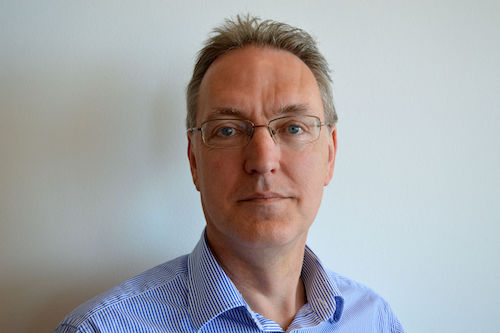Channels
Special Offers & Promotions
Wellcome Trust Backs Dundee and GSK in Quest to find new Drugs for Neglected Diseases

The University of Dundee has been awarded £7.9 million by the Wellcome Trust for a joint project with GSK (GlaxoSmithKline) to boost efforts to find new drugs to treat some of the world’s most devastating parasitic diseases including visceral and cutaneous leishmaniasis, and Chagas’ disease.
These neglected diseases cause substantial suffering and an estimated 60,000 deaths annually world-wide.
The funding will enable the established Dundee/GSK team to continue their work to develop novel drugs to treat these diseases over the next five years. It follows the announcement of £13.6 million from Wellcome in December 2016 to establish the Wellcome Centre for Anti-Infectives Research at Dundee to tackle some of the world’s most devastating diseases.
Professor Paul Wyatt, Director of the Wellcome Centre for Anti-Infectives Research at the University, said, “The development of effective and safe drugs for leishmaniasis and Chagas’ disease will save many lives and improve the quality of life and economies within the developing world.
“The continuing unmet medical need is caused by the current therapies being not fit for purpose, recent clinical trials failures, sparse drug discovery pipelines across the world and there is general agreement that treatment with a combination of drugs is required for these diseases.
“In partnership with GSK we have established the broad range of expertise required to discover these much-needed drugs. The team combines world renowned parasitology, extensive experience developing drug molecules that can kill the parasites, and the substantial expertise and infrastructure required to develop drug candidates suitable for clinical trials.
“This funding from Wellcome is a vital boost to us achieving our five-year goal of producing three new drug candidates suitable for clinical trials in leishmaniasis and Chagas’ disease. We are already making very strong progress in finding possible drugs to treat visceral leishmaniasis, with two candidates funded under a previous Wellcome award currently in the pre-clinical stage of testing which we hope will prove successful.”
Steve Caddick, Wellcome’s Director of Innovation said, “Neglected tropical diseases have a devastating impact on more than one billion people worldwide - many of whom are living in extreme poverty. Wellcome is committed to working with partners to develop new treatments and we are delighted to announce support for the dedicated team of drug discovery experts at Dundee.”
Dr Jose Fiandor, Director of GSK’s Kinetoplastids Discovery Performance Unit, said, “GSK is committed to discovery of new medicines for the treatment of these devastating diseases. The collaboration with the University of Dundee and this funding from Wellcome are vital boosts towards the achievement of our five-year goal of producing new preclinical candidates for leishmaniasis and/or Chagas’ disease.”
These investments build on the world-leading work at the Drug Discovery Unit at Dundee’s School of Life Sciences to find new drugs to treat major diseases such as malaria, tuberculosis and leishmaniasis.
Last year researchers in the Drug Discovery Unit announced the discovery of a new antimalarial with the potential to treat malaria patients in a single dose. It is now in clinical development.
Leishmaniasis is caused by the protozoan Leishmania parasites which are transmitted by the bite of infected female phlebotomine sandflies. The disease affects some of the poorest people on earth, and is associated with malnutrition, population displacement, poor housing, a weak immune system and lack of financial resources. According to The World Health Organisation, an estimated 900,000 to 1.3 million new cases and 20,000 to 30,000 deaths occur annually.
Chagas’ disease is found mainly in endemic areas of 21 Latin American countries, where it is mostly transmitted to humans by contact with faeces or urine of triatomine bugs, often known as 'kissing bugs'. WHO estimates around 6 million to 7 million people world-wide are estimated to be infected with Trypansosoma cruzi, the parasite that causes Chagas’ disease.
more about university of dundee
Media Partners


